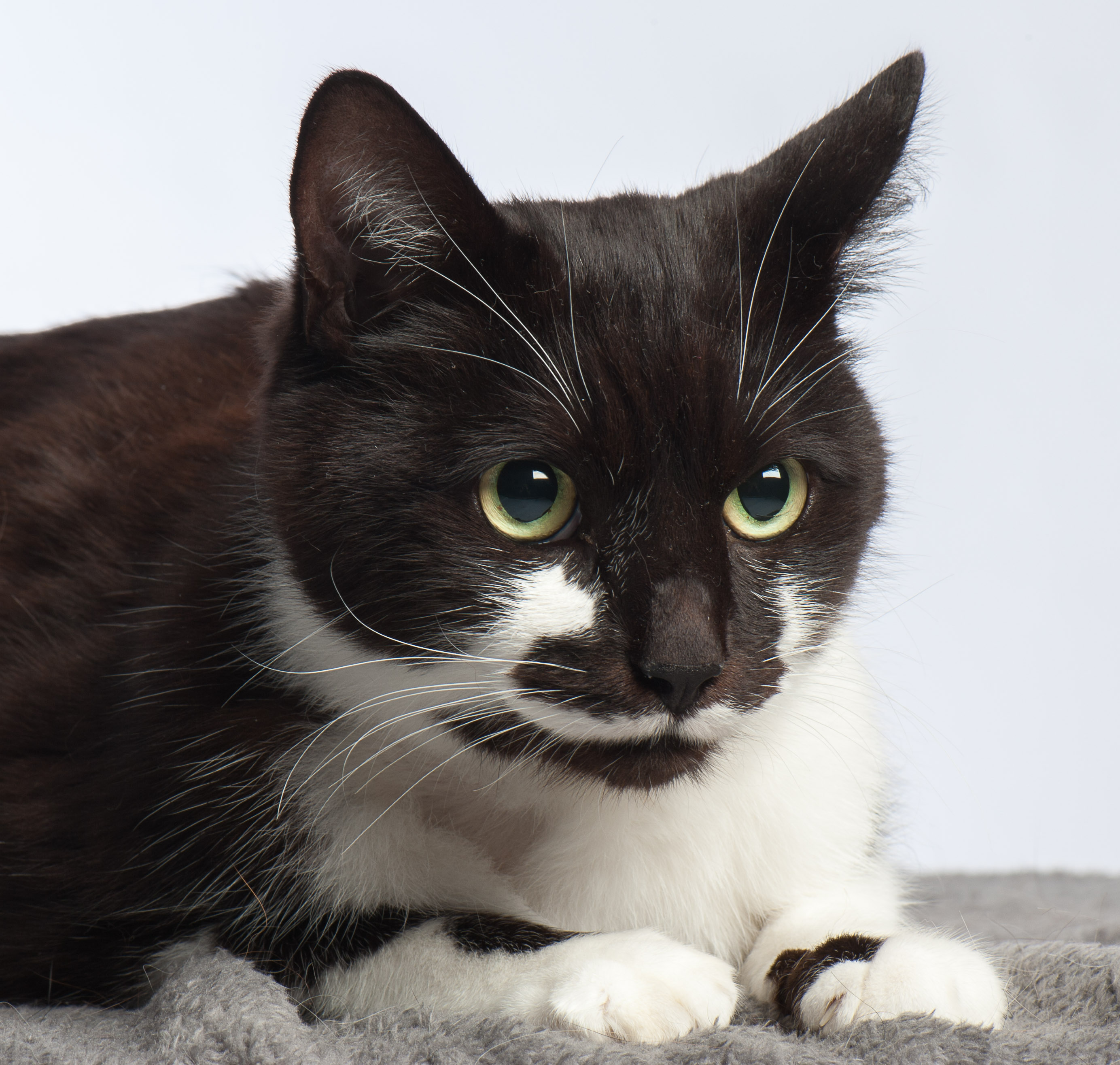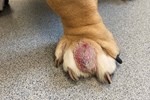New research from the RVC identifies insights into the cause of the 2021 outbreak of a serious feline condition
Two new studies from the RVC have examined the 2021 outbreak of feline pancytopenia – a rare condition that causes serious illness, and in some cases fatalities, in cats.

Due to the rapid increase of cases at the time, the outbreak caused concern amongst cat owners and garnered significant media coverage. The findings of the investigation propose a link between high concentrations of trichothecene T-2/HT-2 mycotoxins (both poisonous substances, produced by fungi) in many of the tested food samples from recalled batches of cat food – amounts much greater than that recommended by the European Commission.
The first study, appearing in the Journal of Veterinary Internal Medicine, describes 580 cats recorded by the RVC’s database during the initial outbreak, the epidemiology of the cases and the link with mycotoxin exposure, which can be severely damaging or even deadly to cats. The cats presented with severe reductions in vital blood cells, including white blood cells responsible for fighting infection and platelets responsible for blood clotting. The research recounts how analysis of these cats’ data – provided both by pet owners and vets - revealed three diets that had been consumed by the majority of affected cats and how this subsequently led to a UK wide recall in June 2021.
Examining the subsequent analysis of the feed samples and the discovery of mycotoxin contamination, which is known to be toxic to bone marrow, and thereby negatively impacting the production of key blood cells, the study concludes that mycotoxin contamination should be considered as the cause of the outbreak.
The second study examines 50 cats identified as having pancytopenia in more depth, providing a detailed picture of clinical findings to better understand the disease process in these cats affected by the outbreak. Records and data of 50 of the affected cats were assessed to identify additional clinical signs which indicated contact with mycotoxins. Following examination of the cats’ bone marrow, it was found that all cats suffered a marked toxic insult to their bone marrow. From this, the study concluded that a differential diagnosis of mycotoxin-induced pancytopenia should be considered in cats presenting with pancytopenia.
Lead authors of the research, Dr Barbara Glanemann, Senior Lecturer in Small Animal Medicine at the Royal Veterinary College and Co-head of the Small Animal Internal Medicine Service at the RVC’s Queen Mother Hospital for Animals, and Dr Karen Humm, Associate Professor in Transfusion Medicine and Emergency and Critical Care at the Royal Veterinary College, said:
“These pieces of research involved a great deal of work from many people (noted as authors and acknowledgments in the papers) and we really appreciate the teamwork involved, and the collaborative support we received.”
“We know first-hand how much devastation and concern this outbreak caused for many cat owners across the country and so it is our hope that the studies will help people better understand what happened to cause this outbreak and can be used to not only provide some closure to those affected but also reduce the chances of something similar occurring in the future.”
Notes to Editors
Reference
Glanemann, B., Humm, K, et al. (2022). An investigation into an outbreak of pancytopenia in cats in the United Kingdom, Journal of Veterinary Internal Medicine.
The full paper is available at: http://doi.org/10.1111/jvim.16615
Glanemann, B., Humm, K, et al. (2022). Clinical and clinicopathological features and outcomes of cats with suspected dietary induced pancytopenia, Journal of Veterinary Internal Medicine.
The full paper is available at: http://doi.org/10.1111/jvim.16613
For media enquiries, please contact:
- Jasmin De Vivo jasmin.devivo@plmr.co.uk or rvc@plmr.co.uk
- Press Line: 0800 368 9520
About the RVC
- The Royal Veterinary College (RVC) is the UK's largest and longest established independent veterinary school and is a Member Institution of the University of London.
- It is one of the few veterinary schools in the world that hold accreditations from the RCVS in the UK (with reciprocal recognition from the AVBC for Australasia, the VCI for Ireland and the SAVC for South Africa), the EAEVE in the EU, and the AVMA in the USA and Canada.
- The RVC is ranked as the top veterinary school in the world in the QS World University Rankings by subject, 2022.
- The RVC offers undergraduate and postgraduate programmes in veterinary medicine, veterinary nursing and biological sciences.
- The RVC is a research led institution with 88% of its research rated as internationally excellent or world class in the Research Excellence Framework 2021.
- The RVC provides animal owners and the veterinary profession with access to expert veterinary care and advice through its teaching hospitals and first opinion practices in London and Hertfordshire.

